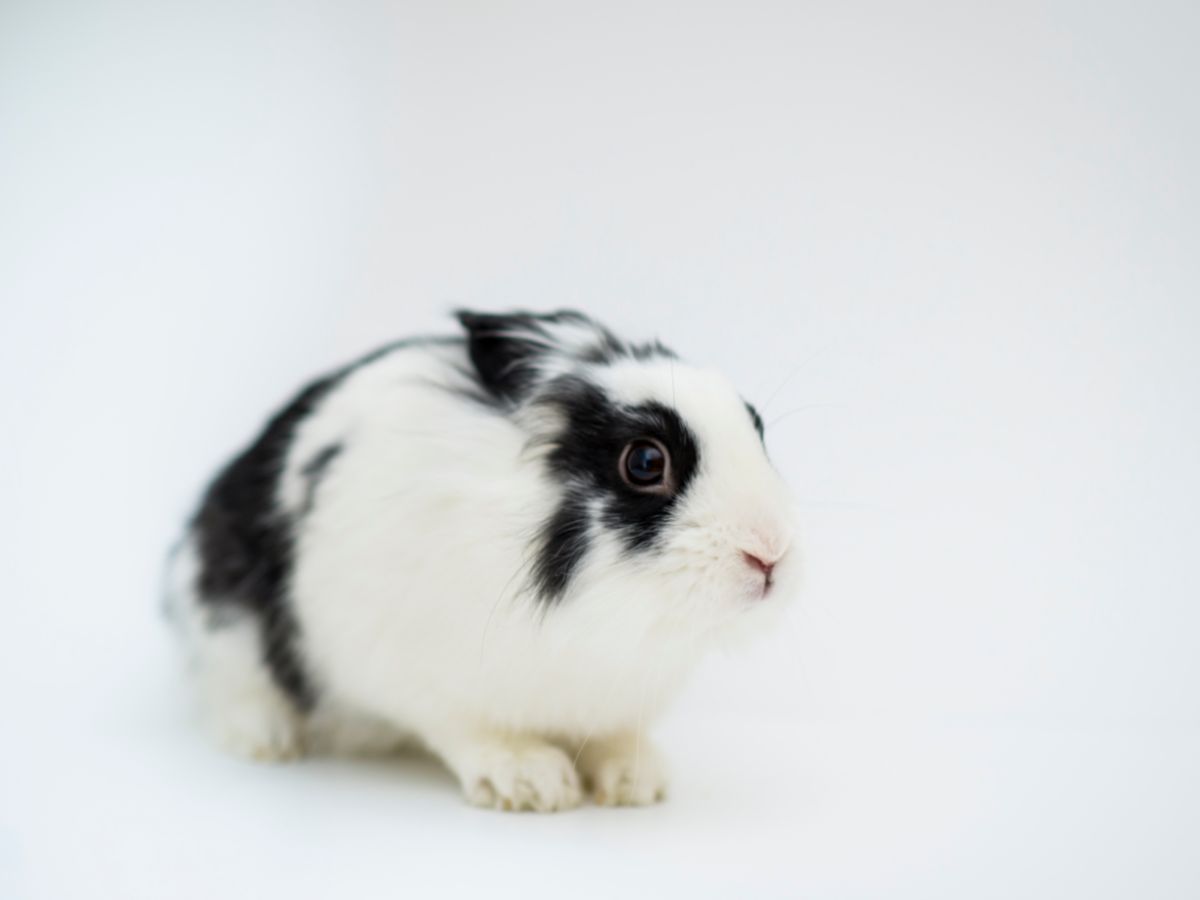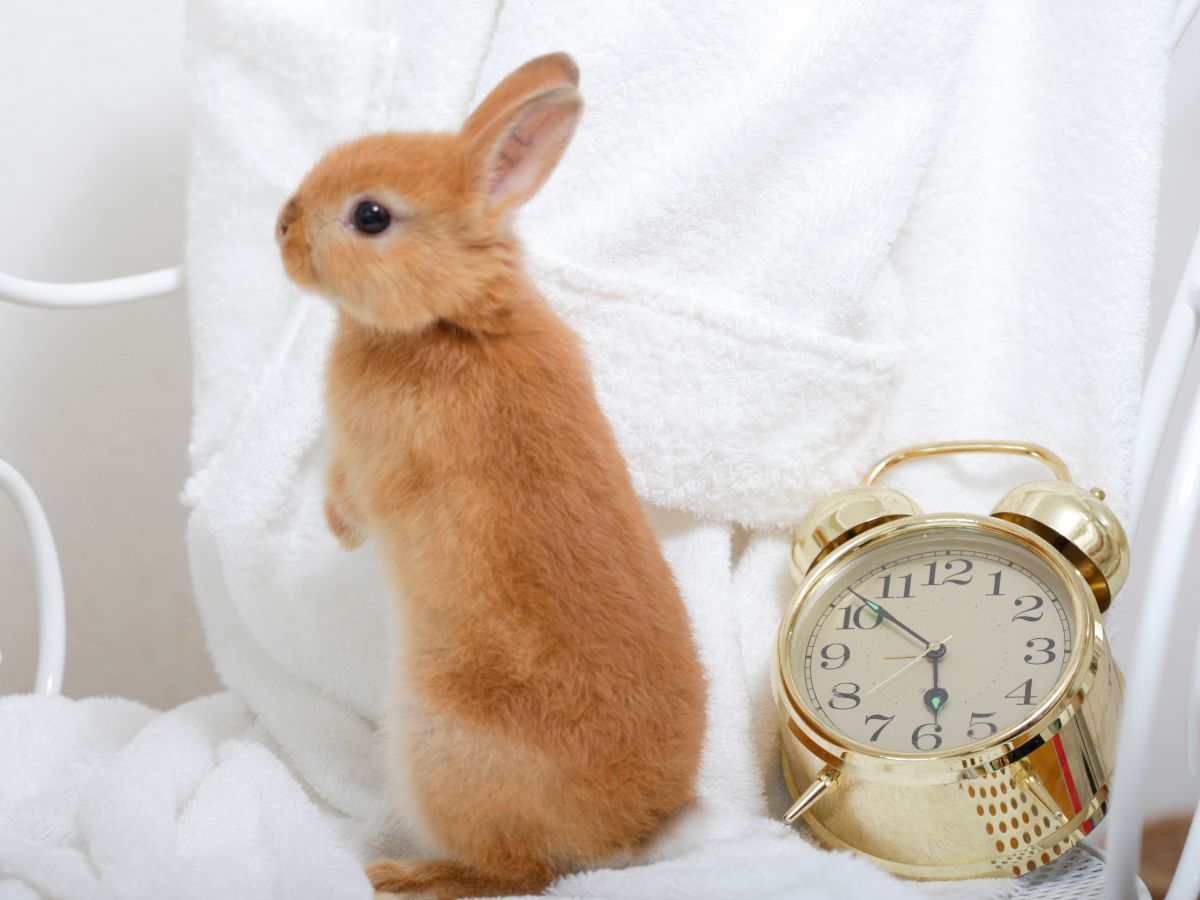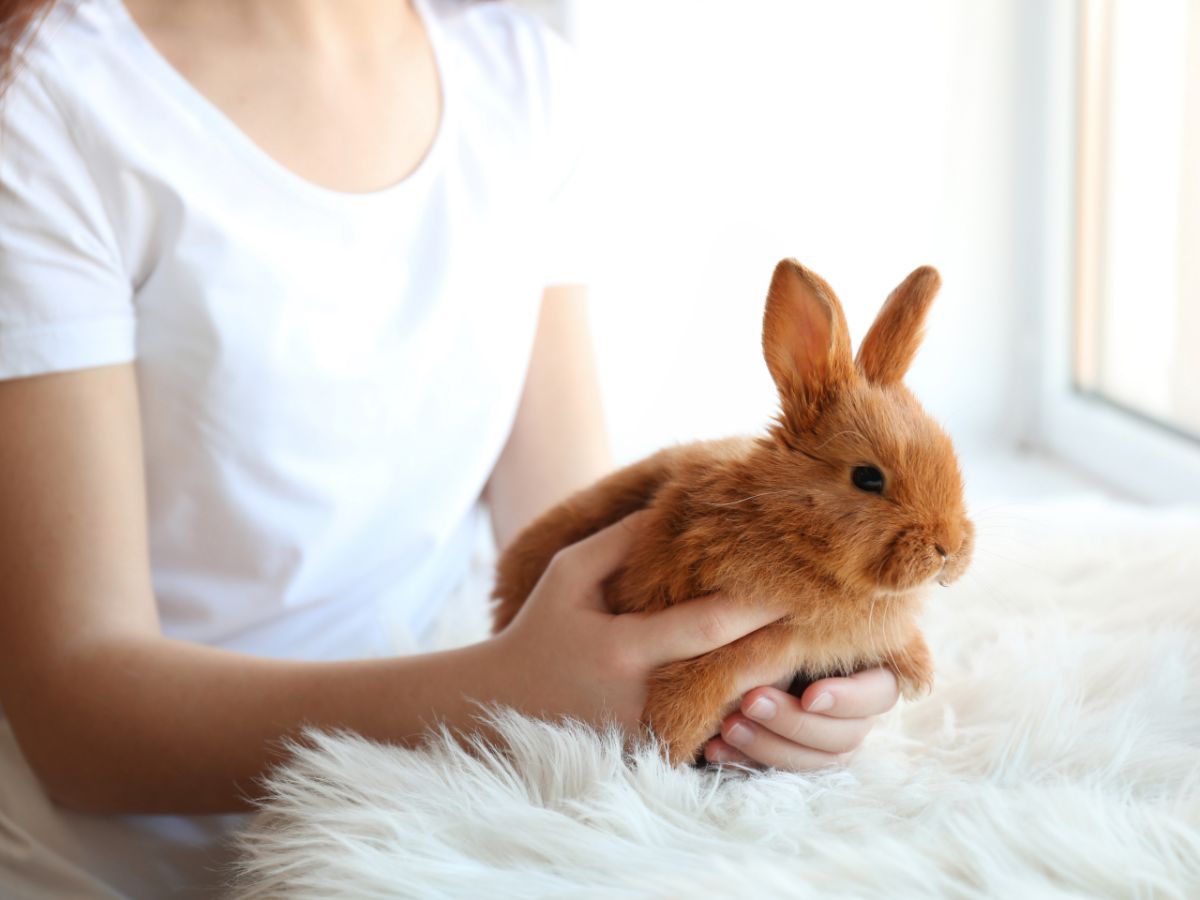Rabbits portray fear in different ways and for different reasons. A rabbit might be acting strange and not its usual self. You might wonder if the rabbit is sick, or is it a sign of fear?
Signs that rabbits are showing fear include eating issues, ears upright, freezing stance, ready to run away, aggressive behavior, running from you as soon as they get the chance, getting vocal, or shaking. Rabbits are scared when they feel they are getting attacked or threatened.
A rabbit portrays sure signs when feeling fear. The worst is that they might act up and hurt you or someone else. The best solution would be to know all the signs of fear and how to calm them down.
Contents
Signs That Your Rabbit Is Afraid
Firstly, you must remember that rabbits are prey animals, so if anything, they are nervous animals because they have to watch their backs. Maybe you have had a rabbit for a while, and it is acting up. Your new rabbit will need specific surroundings and maybe changes to your current routine to make them feel safe and relaxed.
Does Your Rabbit Have Eating Or Grooming Issues?
Rabbits that feel stressed might act like humans that are stressed. Some of us cannot eat when stressed, and others over-eat, which also happens to rabbits. If you see your rabbit eating a lot more or barely touching their food, they might be stressed. They sometimes over-groom themselves when feeling stressed. You can identify this behavior by the rabbits licking themselves excessively.
Is Your Rabbit Shaking With Fear?
You might think, or want to think, that your bunny’s shaking results from something else. Unfortunately, the main reason is that they are afraid. We as humans also start shaking when we are scared. Shaking happens because the adrenaline starts to flow through their bodies, increasing their heart rates and leading to muscle fiber twitches. You might also hear raced breathing.
Is Your Rabbit On Their Marks?
Does your rabbit portray behavior as if it wants to start a race? Ready, set, run. When they feel stressed, they might flatten out, meaning they will stretch out their bodies and go down low and ready to make a run for it. If your rabbit wants to run for it, you must consider why. Something is making them feel scared.
Does Your Rabbit Seem Aggressive?
Fearful rabbits might feel the need to scratch, bite, or kick to defend themselves. This behavior can be dangerous, especially if you have small children or want to spend time with them. You will have to avoid physical contact until you can get the fearfulness under control.
Is Your Rabbit’s Flight Mode On?
The adrenaline rush usually causes a rabbit to flee and hide. This behavior is severe, and you should not make it off as anything. If your rabbit runs and hides, it is more likely that they are afraid and not so shy. Maybe they don’t have a hiding place in their “holding,” then they would typically run and “hide” in a corner.
Is Your Rabbit Talking?
Talking is not your rabbit being “cute” or talking to you. Your rabbit might be vocalizing its fear. It is a built-in defense mechanism to let other rabbits know there is danger and to be aware. They use this method to scare the predator, which might be you.
Are Your Rabbit’s Ears Upright?
Your rabbit is looking all nature-like with its ears up. They have big eyes, nothing moves, and the ears are upright. Unfortunately, a relaxed bunny would have flat ears, not wanting to be on alert or the nearest threat.
Thus, your rabbit might be feeling anxious about something. With the upright ears, they might portray a freeze. This behavior shows they are focusing on the threat and when to flee.
Is Your Rabbit Tap Dancing?
Your rabbit might portray something like tap dancing, but believe it or not, it sends warning signals to other rabbits to let them know there is danger in their midst. Your rabbit will thump their back feet and partner with some grunts to let the predator know that it might be you, that they are ready for a fight.
Is Your Rabbit Wetting themselves?
Like humans, rabbits might lose control over their bladders and wet themselves as soon as they feel danger or cannot escape a situation they dread. Do not think your rabbit might have an incontinence issue; they are scared.
How Can I Calm My Rabbit?
When you find any of the above signs in your rabbit, you can implement a few things to calm your rabbit and have a pet rabbit rather than a vicious, wild rabbit.
- Give your rabbit a comfy, safe, and secure home – upgrading your rabbit’s home can do much for their confidence and fear level. Make sure it is clean; they have toys to keep them busy, and most importantly, holes or covered areas, so they feel safe.
- Do not approach your rabbit at your height – your rabbit might also see you as a predator. Instead, approach your rabbit from a lower position or first sit at the gate so they can see that you are not a threat.
- Have a snack available on your lap and wait for your rabbit to come to you. Once it is on your lap, cover its eyes and stroke the ears slightly. Let your rabbit make contact first – allow your rabbit to come to you out of its free will, rather than you picking it up.
- Give your rabbit time to adjust – sometimes your rabbit only needs some alone time to adjust to a new environment or shake off a bad experience.
- Routine always makes stress less – having a routine makes everything better. Have a strict routine with your rabbit. Cleaning, feeding, and letting it out of the cage should happen timely every day. This way, the rabbit knows what to expect, and that fear is unnecessary.
- Eliminate sudden movements and sounds – sudden movements and sounds disturb rabbits and stress them out. Ensure the laundry is not flapping in the wind near the cage, your dog barks close to them, or your kids shout near them.
Conclusion
Getting a rabbit as a pet might need more effort than you think, but it is not difficult. Putting yourself in your rabbit’s shoes would help you identify scary things in their surroundings. Your rabbit being stressed or scared is serious. If you don’t know why and cannot improve your rabbit’s circumstances, please see your vet urgently.




